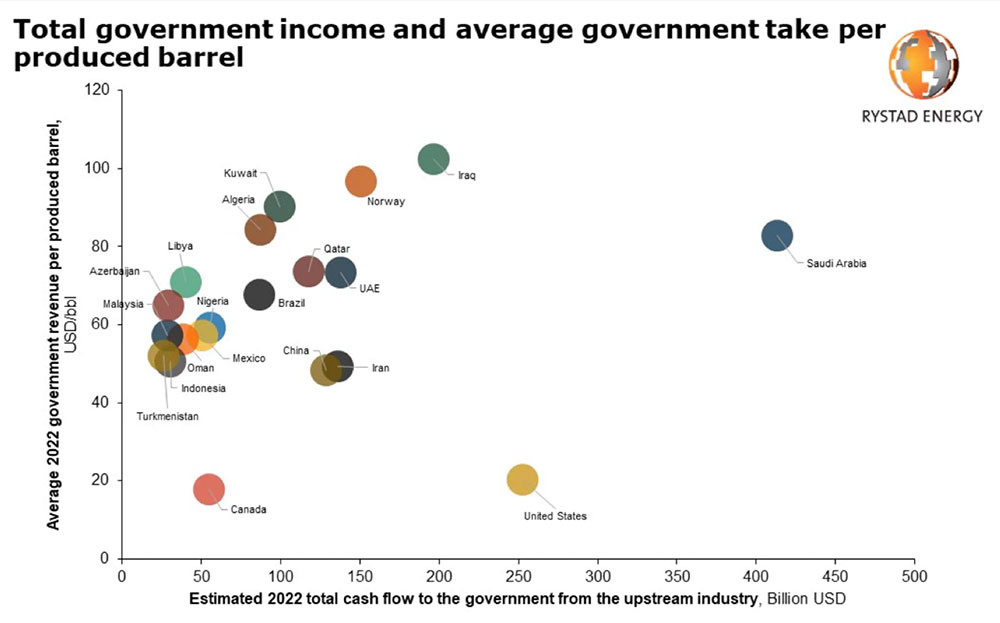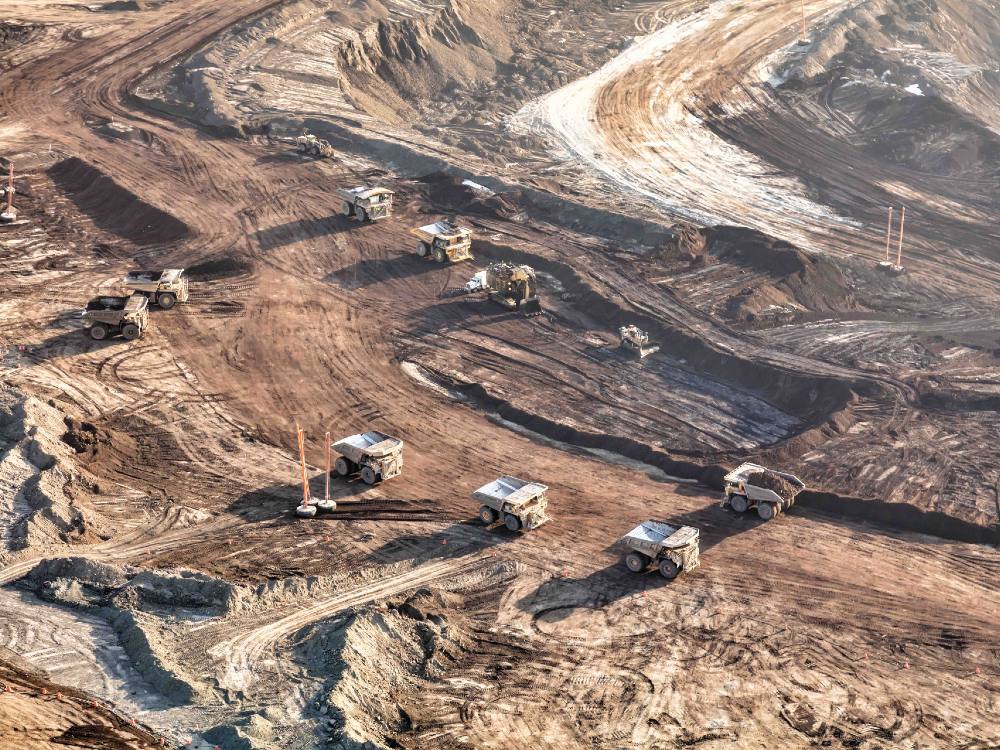"Character — the willingness to accept responsibility for one’s own life — is the source from which self-respect springs." — Joan Didion
Amid the smoke of raging wildfires another damn Alberta election seems to be rumbling down a familiar road of bitumen-paved illusions.
To no one’s surprise neither the NDP or the United Conservative Party really want to address the root of the province’s dysfunction: its traumatic addiction to bust-and-boom oil revenues with no institutional checks or balances on their corrosive power.
This refusal to change explains much about the province’s enduring political dysfunction — its perpetual fiscal rollercoaster (it is always either cutting or splurging); its one-party Soviet-like rule; its indifference to environmental pollution in the oilsands; its aversion to a sales tax; its slavish deference to oil interests; its failure to deal with more than $260 billion worth of abandoned wells, pipelines and other oil liabilities; its growing political extremism and its increasingly aggressive posture to the rest of Canada.
History shows that petrostates are twice as likely to engage in conflict with their neighbours than non-petrostates. They invariably turn into intolerant bullies because they have the money to do so.
The carpet bagger Jason Kenney made attacking real or imagined dragons in Ottawa his solo song, while Danielle Smith, his replacement, has escalated by playing the sovereignty card along with more federal-bashing. (Let’s be clear here: Prime Minister Justin Trudeau has been a rotten leader, but he doesn’t decide the global price of oil, let alone dictate how much Alberta should spend or save.)
No integrity can be found in this kind of blame because blame, as the Texas researcher Brené Brown might put it, is the inverse of accountability.
Petrostates shun accountability. Nor do they like to look in the mirror of their vulnerability.
In the weedy garden of human politics, petrostates stand out like genetically modified wheat. By definition a petrostate is any country or jurisdiction (from Wyoming to Nigeria) where revenue from oil, gas or coal exports exceeds 10 per cent of GDP.
Because of growing bitumen exports to the United States, Alberta’s dependence often exceeds 26 per cent.
Meanwhile oil and gas account for half of Russia’s exports and about 15 per cent of its GDP. In Texas, oil and gas activity speak for 22 per cent of GDP. In places like Iraq and Qatar, the figure can be up to 50 per cent. And so on.
Petrostates, like the powerful commodity that defines them, are pretty volatile places that routinely live beyond their means. During booms (high oil prices) they tend to be delusional high spenders, and during busts, they can’t pay their bills and claim victimhood.
Petrostates also create a Midas-like culture of rent-seeking wherein people ask for things without reciprocity. The Alberta government encourages newcomers to come and make a killing as opposed to enjoying a living. Petrostates prefer greedy subjects to sober citizens.
Since 2008-09, Alberta has lived the paradox of repeated and massive deficits despite record high oil production.
Why? It still celebrates some of the world’s lowest royalties and the absence of a stable tax regime including a sales tax. Even in a state that relies on declining petrodollars instead of direct taxation, citizens, notes Stanford political scientist Terry Lynn Karl, “are not motivated to ensure that state revenues are well spent; they are not engaged; and they seldom demand better monitoring of the utilization of revenues.”
During Kenney’s deficit-plagued administration, the government refused to address the taxation issue. Instead, it proposed to replace oil revenue with metallurgical coal dollars by allowing open-pit mines throughout the critical watersheds of the Rocky Mountains. When citizens balked at that crazy scheme Kenney then hacked away at essential services, cut Alberta Wildfire by $30 million and axed a rapid response team to save a paltry $1.4 million. A reactive petrostate is always burning its subjects and discounting the future.
Due to the savage military aggression of Vladimir Putin, all funded by Russia’s oil production, petrostates have all entered a delusional state right now. The war raised global oil prices and nearly erased Alberta’s 2021 $17-billion deficit in 2022 with record income. (Between 2022 and 2024, Alberta forecasts $60 billion in oil and gas revenues. That’s more than it made in the previous decade.)
This wave of unearned cash accounts for Premier Danielle Smith’s Tucker Carlson-like politics and reluctance to support Ukraine. Putin’s war, afterall, refilled Alberta’s depleted coffers and financially reanimated her fractious UCP.
Karl, an astute U.S. political scientist, has long written about the poisonous character of petrostates. Their central weakness is that they rely on unstable oil revenues from a few corporate players instead of a secure tax regime funded by citizens.
This dependence severs the critical bond of taxation from representation and puts the state in a perpetual conflict of interest. It explains why Alberta blindly champions the industry and eternally boasts that it has the lowest tax regime in Canada and no sales tax.
Four companies now account for 80 per cent of oilsands production and 25 per cent of the province’s GDP. A government dependent on the proceeds of just four companies tends to defer to its funders, and that’s why as premier NDP Leader Rachel Notley even sent out pro-pipeline Valentine’s cards.
This rampant conflict of interest also explains why a toxic wastewater spill can occur at Imperial Oil’s oilsands mine and not be reported to water drinkers downstream for 10 months. Imperial is one of the four oilsands companies that generate nearly 20 per cent of the government’s royalty revenues.
Petrostates are also obsessed with capital-intensive oil projects coupled with a strong bias against agriculture and other industries. In actions and words a petrostate puts the needs of the oil and gas industry before everything else. It excuses their debts, subsidizes their activities and even funds their propaganda. Kenney even passed an act that guarantees no changes will be made to oil gas royalties for a decade — legislation that slavishly enriches foreign companies at Alberta’s expense.

Every petrostate thinks it is exceptional, and suffers from advanced petromania. They mistake their geological good fortune and all the money it generates for innate superiority and special status. As such the resource makes every petrostate a prized example of the Dunning-Kruger effect. They begin to think they are more competent, capable and smarter than they really are. Some call themselves great and embark on murderous crusades.
History holds little currency in a petrostate, but there was a time when politicians behaved differently. Former premier Peter Lougheed, who governed Alberta for 14 years from 1971-85, clearly understood how oil money could undermine the dynamics of good governance. As such he actively tried to address many of these dysfunctions. Over time he developed a series of principles that aimed to give Alberta a Norwegian-like experience with oil, ensuring benefits were lasting.
The principles, which I have written about for decades with seemingly no effect, were radical yet conservative.
It is instructive that every government since Lougheed’s administration has violated or ignored these principles. But Alberta will never be politically stable let alone provide competent governance until it embraces them. As such they are worth repeating even in a province that openly celebrates its deafness to the perils of dependence on a volatile resource.
Behave like an owner. Lougheed believed that responsible ownership recognized oil as a finite resource and that its money must be carefully managed for tomorrow and not spend for today.
Collect your fair share. One of his first acts as premier was to increase royalties to 40 per cent from 17 per cent. He didn’t believe that owners should give away their resources for diminishing benefits. He also understood that higher royalties slowed development, and encouraged corporate innovation and discipline. Until Putin’s war successive governments let royalties steadily shrivel until they accounted for only six per cent of the government’s income.
Now Danielle Smith, a former industry lobbyist, has proposed a royalty giveaway program: she wants to provide companies with $20 billion in royalty credits if they clean up their abandoned wells — something they are obliged by law to do anyway.
Save for the rainy day. Lougheed committed 30 per cent of the government’s royalties to a Heritage Savings Trust Fund for future generations. But that practice ended in 1987. No conservative government in Alberta understands the meaning of saving for a rainy day.
Clean up the messes. Lougheed acknowledged that the oil and gas industry polluted, and that the polluter must pay to clean up its messes. Since then subsequent governments have allowed environmental liablities in the industry to grow to $260 billion — a threat to Alberta’s future.
Add value to the resource. Lougheed didn’t think that Alberta should export raw bitumen and that it should be upgraded into valuable fuels at home. He did not believe that allowing foreign actors like the Koch brothers to make windfall profits upgrading bitumen at their U.S. refineries was in Alberta’s best interest. (Not surprisingly the Koch brothers used their profits to fund political extremism in the U.S.)
Go slow. Lougheed thought the government should never approve more than one oilsands project at a time. Going slow permitted the management of the inflationary cost of oil booms and their challenges to existing infrastructure. It also allowed government and industry to address environmental problems. The architect of Norway’s oil development, Farouk al-Kasim, a brilliant Iraqi geologist, cautioned the Norwegians to do the same.
Since Lougheed’s time, all baselines have shifted. Governments captured by industry dramatically lowered royalties and accelerated development — as many as 100 projects since 1996. They ignored environmental liabilities. They allowed oil lobbyists to write the rules for regulators. They spent like fools and taxed like idiots. They did not act like owners and performed like pimps for pipelines. In 2021 David King, a former minister in Lougheed’s administration, even referred to the province as a failed petrostate.
Given the poverty of discussion about these issues during this election here’s what citizens must consider if they are to elect representatives capable of restoring Alberta's democracy and ending its petro-dysfunction.
1. Introduce a sales tax and a direct tax regime. The sales tax can help replace revenue from oil and gas activity and end the government’s obscene dependence on volatile oil revenue. A government that runs on regular taxes can’t be a high spending machine out to buy votes; it must reflect the interests of its citizens. Albertans might even pay better attention to the performance and competence of their government, if they funded all of its services.
2. Take all oil and gas revenue off the table and save the money for future generations. By ending its dependence on volatile income, the petrostate is less likely to behave like a grandee or be beholden to oil interests. It must live within its means instead of bribing its citizens. Lougheed created Alberta’s Heritage Savings Trust Fund for this very reason in 1976 but subsequent governments sabotaged it. While Alberta’s fund claims a paltry $18 billion, Norway’s oil fund now totals more than a trillion dollars. The Norwegian state does not run on oil loot but ordinary taxes.
3. Behave like an owner and raise royalties. Booms don’t last. For decades the Alberta state has allowed oil producers to take home more money than the owner of the resource. The Norwegian firm Rystad Energy recently calculated the average government take per produced barrel of oil for several oil exporting states. The figure is based on a number of metrics including including cost levels, oil price discounts, gas prices and tax rates. Norway captures about $100 dollars for every barrel produced and that money goes into its oil fund. In contrast Canada (read: Alberta) ranks the lowest in the world at less than $20 and uses that paltry amount for high spending sprees and dysfunctional politics. Lougheed always advised Alberta to behave like an owner. But during a cycle of high oil prices, Alberta continues to behave like a servant that can’t even sustainably fund a competent wildfire program in the age of climate chaos.
4. Clean up the mess and address the industry’s $260-billion liabilities. The oil and gas industry will not clean up its pipelines, abandoned wells and oilsands liabilities unless it is forced to by an accountable government that is not dependent on its revenue. To date the collection of security funds from industry has been totally insufficient for the job. To end this corruption the government must dedicate a percentage of royalty increases (at least 10 per cent) to a new ministry of reclamation with one enforceable goal: transparent and targeted reductions of these liabilities.
5. End the war profiteering: A portion of Alberta’s record income from oil production that does not go into its savings fund should be sent to the government of Ukraine. Norway, another oil exporter, has recognized that it is indirectly profiting from Putin’s brutal invasion, and has promised Ukraine $7 billion in aid over the next five years. Alberta should be a moral leader, and do the same.
As I noted in 2012, 2014 and 2015, nothing will change in Alberta’s petrostate until its citizens embrace representative taxation (and pay their own way), shut down the oil revenue roller coaster and save for a rainy day. Or months of wildfires.
Karl defined the dysfunction of petrostates with painful clarity. “They rely on an unsustainable development trajectory fuelled by an exhaustible resource and the very rents produced by this resource form an implacable barrier to change.”
Are Albertans courageous enough to demand their political parties change this dynamic before the next oil bust? ![]()
















Tyee Commenting Guidelines
Comments that violate guidelines risk being deleted, and violations may result in a temporary or permanent user ban. Maintain the spirit of good conversation to stay in the discussion and be patient with moderators. Comments are reviewed regularly but not in real time.
Do:
Do not: